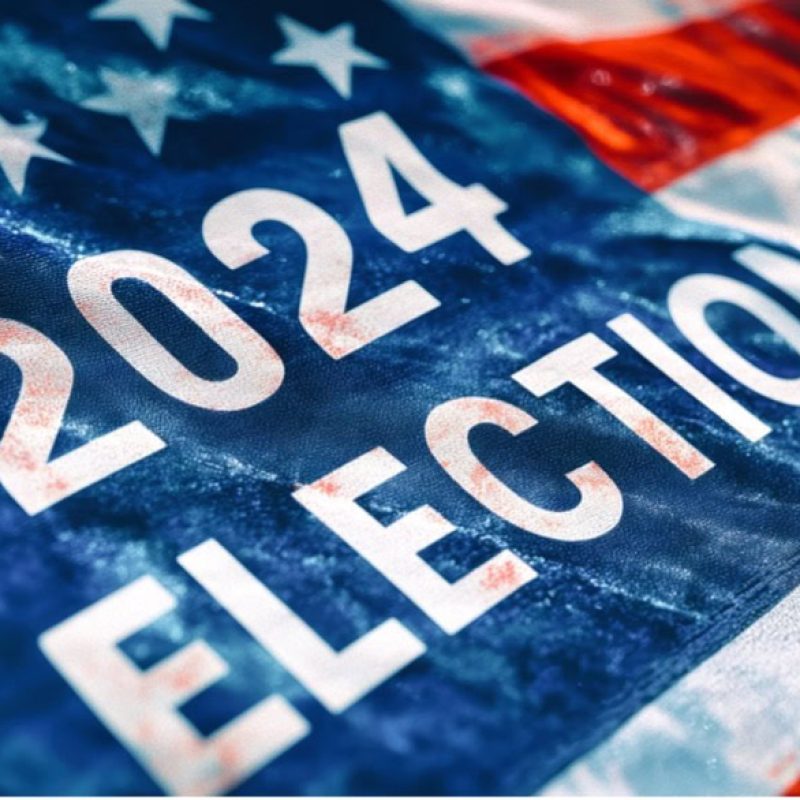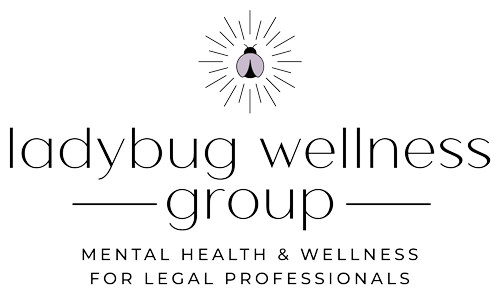Push notices. Social media posts. Campaign ads. Memes. Workplace chatter. Email blasts. News coverage. Fundraising events. Dinner table discussions.
With the 2024 Presidential Election only one week away, we are inundated with all manner of political noise. While media coverage and political debate are mainstays of modern elections, this election season is unlike any we’ve seen before. From immigration to reproductive rights and gun control to the conflict in the Middle East, the candidates – and the American voters – are more polarized than ever. For many, political ideology, which increasingly reflects more fundamental values and beliefs, is driving a wedge between family members and friends. Assassination attempts, a late-breaking candidate change, legal battles, and the character of the candidates themselves are evoking intense emotional reactions in many voters. Additionally, anticipation about the transfer of power, the next four years, and the future of our democracy are leaving many Americans plagued by fear, disillusionment, hopelessness, anger, and despair. No matter the outcome, we face a tumultuous, fractured, and potentially volatile road ahead. In short, the stakes have never been higher.
Research confirms that elections are a source of chronic stress for many individuals. According to Brett Ford, a professor of psychology at the University of Toronto who studies the link between emotions and political engagement, “we know that chronic stress harms psychological [] and physical well-being. It takes a toll on our bodies.” In the American Psychological Association’s 2024 Stress in America survey, nearly half of Americans cited politics as a significant source of stress, and pointed to loss of sleep, shortened tempers, and obsessive thoughts as a result. One in 20 Americans further reported that distress about politics has led to suicidal thoughts. Ford explains that politics is a complicated and multifaceted stressor because it can trigger such a wide range of emotions, and often involves conflicts between groups, which can have real life social ramifications. Compounding this stress is the volume of information and media coverage surrounding elections, leaving many individuals feeling emotionally exhausted and overwhelmed.
It is no surprise then that the current election season, which is marked by increased hostility, divisiveness, and uncertainty, is having an even greater impact than previous elections on our mental and physical health. Research shows that, as we head into the home stretch, Americans are experiencing significantly elevated levels of stress, anxiety, and depression. The APA survey reveals that 69% of Americans feel distressed by the current election, as compared to 52% in 2016. Specifically, 77% of Americans said the future of our nation is a significant source of stress, 74% reported that they are worried the election results could lead to violence, and 56% fear that the 2024 election could be the end of democracy in America. Exposure to incessant election-related news, social media content, and campaign communications is exacerbating feelings of isolation, fear, disillusionment, and hopelessness. This distress is so severe, moreover, that 41% of survey respondents said they have considered moving abroad and 39% have considered moving to another state. According to the New York Times, the current political environment has led Americans on both sides of the aisle to hold off on buying houses, changing jobs, planning weddings, and making other important decisions and large purchases. With the candidates in a dead heat, we are individually and collectively holding our breathe.

As if this isn’t enough, the election threatens real professional implications for many lawyers. The outcome will no doubt dictate which issues the government investigates, which cases it prosecutes, and which legislative agenda it pursues. Lawyers may find themselves defending policies or trying cases that feel morally wrong or personally offensive. Alternatively, some may see their workload waning or suffer a hit to profits due to shifting political agendas and reallocation of resources or as a result of clients moving their business to firms or individual attorneys with whom they align politically. Politically appointed government attorneys, moreover, may be scrambling to find new jobs.
So how do we weather this storm and its aftermath? How do we preserve or repair relationships with friends and family that have been fractured by opposing political views and the values they reflect? How do we prepare for and endure the impact on our careers? How do we rebuild trust in our system of government and in humanity? How do we learn to accept an outcome that may be antithetical to our beliefs? How do we manage the fear, uncertainty, anger, despair, and anxiety that so many of us are already feeling, and likely will continue to grapple with after the results are in? How do we shut out the noise?

While we can’t control the outcome of the election or what lies in its wake, there are numerous things we can do to care for ourselves during these challenging times.
- Limit Media Consumption: Limiting your exposure to distressing news can reduce mental overload. Consider scheduling “news-free” periods in your day or using apps to track or limit screen time.
- Make Time for Self-Care: Prioritize your wellness by getting sufficient sleep, eating well, exercising, taking breaks (and deep breaths) throughout the day, and attending to your physical and emotional needs. If it isn’t already part of your routine, try adding meditation, journaling, or yoga to your day.
- Steer Clear of Confrontation: Avoid potentially heated political discussions and tense interactions. If it feels difficult or unpleasant to engage with certain colleagues, neighbors, friends or family members, give yourself some space until the dust settles. You might find that they appreciate the space as well.
- Remain Connected: While it may be tempting to hole up at home, isolation intensifies feelings of angst, frustration, sadness, and fear. Instead, find opportunities to connect and engage with family and friends who share similar values and can offer distraction and emotional support. They may need some extra support too, so lean in for both of you.
- Focus on the Things in Your Control: During these distressing and uncertain times, try to establish a routine that is predictable, certain, and within your control. It can be as simple as making and sticking to a menu for the week, establishing a regular bedtime, limiting the time spent scrolling social media, or checking in with a friend every day.
- Treat Yourself: If you’re feeling down, indulge in something that relaxes you or brings you joy. Get a manicure, play video games, eat ice cream, or spend the morning in bed.
- Stay Active: Whether you’re practicing yoga, playing tennis, going to a dog park, or hitting a movie or a concert, make time for activities that get you out of the house and shift your focus from the election to something active and enjoyable.
- Limit Drug and Alcohol Use: Pouring a drink may feel like the easiest and most effective way to cope but, in reality, drugs and alcohol lead to greater depression and emotional distress. Stay away from these self-destructive behaviors and instead opt for healthy and positive indulgences.
- Meaningful Political Engagement: Consider volunteering at a voting center or helping with grassroots campaign efforts. For many, participation in the election process – even by simply casting a vote – promotes positive emotions, including inspiration and hope, and leads to a greater sense of social connectedness.
- Seek Professional Help: If feelings of anxiety, despair, or hopelessness persist, or if you find yourself engaging in self-destructive behavior to cope with the stress of the looming election and its aftermath, seek support from a private therapist, counselor, or coach, or reach out to your employer’s free and confidential Employee Assistance Program or your state bar association’s Lawyer Assistance Program.
By setting boundaries, fostering connections, practicing self-care, and supporting each other, we can better manage these challenges and emerge from this election cycle feeling resilient and grounded.
YOU DON’T HAVE TO GO IT ALONE.








